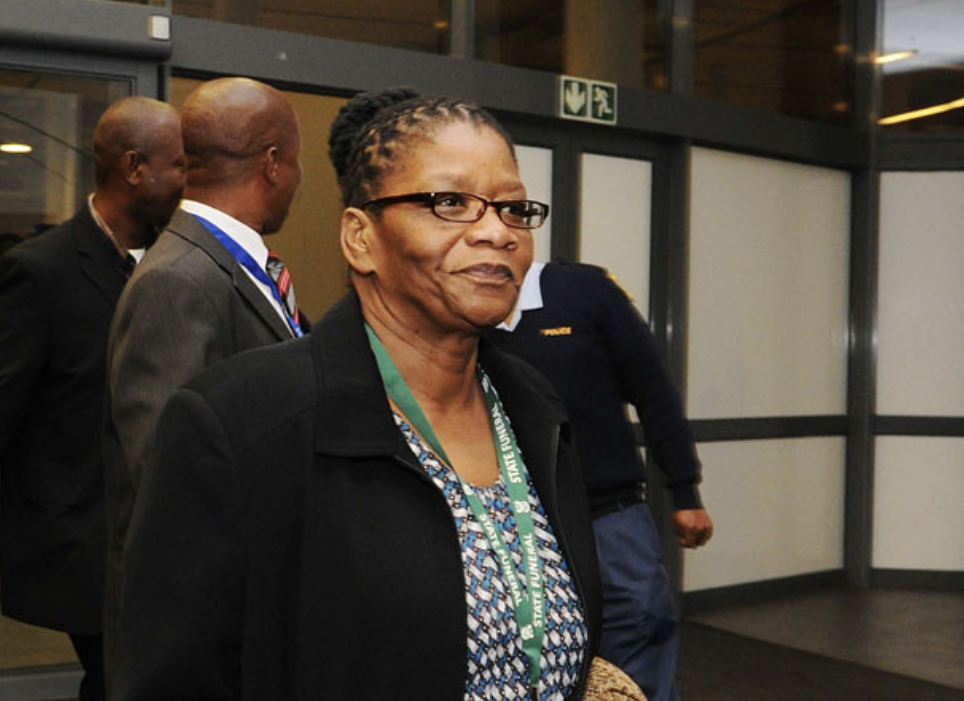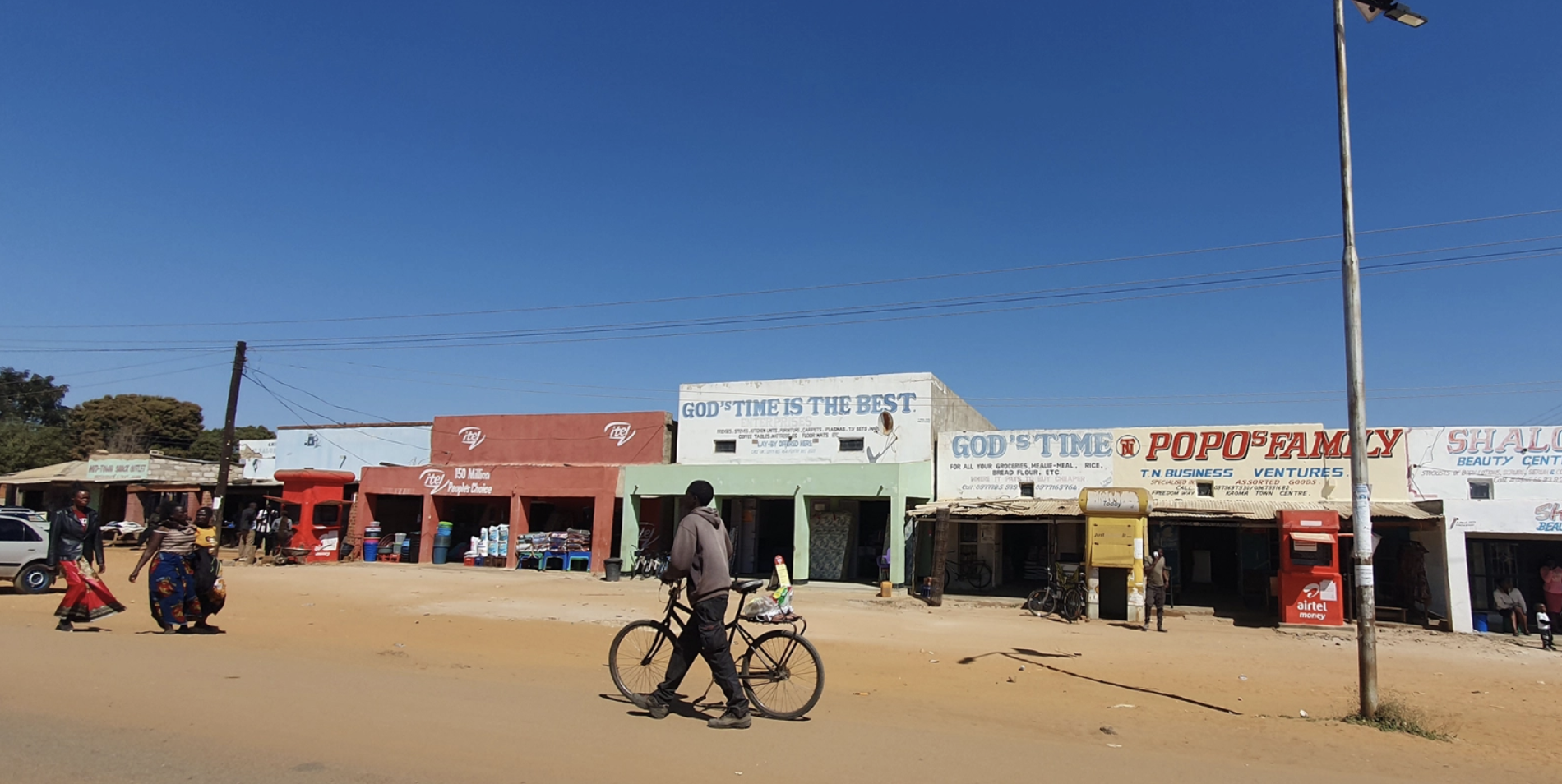News
Flying Circus — Thandi Modise's Shocking Trip to Russian Security Conference
You can be sure that hanging around at a security conference in Moscow is not going to win the ANC any votes. It will raise the obvious question among voters — does our security alliance with Russia in fact harm our security and economic interests?

Research Director, The Brenthurst Foundation

Director, The Brenthurst Foundation

Monty Python left Pretoria last night for the circus in Moscow. Only the comic absurdity of the great John Cleese and his gang can adequately describe South Africa's diplomatic antics.
There are, of course, less fanciful ways to describe the government's flip-flopping: At best 'confused'; at worst 'two-faced'.
And so it was that, barely a week after hosting US Secretary of State Anthony Blinken in Pretoria — where amidst discussion about shared values, the platitudes used by the foreign minister, Naledi Pandor, included “We are appalled by war” and “We abhor war because it brings untold suffering, which is something we experienced under apartheid” — the South African Defence Minister, Thandi Modise, departed for Moscow for the “10th Moscow Conference on International Security at the invitation of the Russian Minister of Defence, General Shoigu”.
Russia, the watching world knows from its invasion of Ukraine, is clearly in favour of war, aggressive, belligerent, imperialist conquest of neighbouring territory using a scorched earth policy. Even its supporters will acknowledge this fact.
Of course, with the exception of a statement that was walked back on the day of Russia's invasion, South Africa has found itself unable to express this view for reasons yet to be fully exposed.
When meeting Blinken, Pandor went as far as she possibly could down the road of condemning the invasion, saying: “Firstly, on the matter of Russia and Ukraine, there is no one in South Africa who supports war. We've made that very clear.”
By using the word “war” rather than “invasion” (the term that her department used on the day of the invasion for the last time), she cleverly pretended that both sides were at fault and that there was a need for “intensified efforts at increased diplomacy utilising the good offices of the United Nations, particularly the secretary-general and other leaders who may be of weight in terms of persuading the interlocutors to come around a table and negotiate a settlement of this awful conflict.”
And so, with the door to peace hanging loosely on its hinges, Modise departed for Moscow at the invitation of Shoigu.
The aforementioned Shoigu is one of the prime drivers of the scorched earth policy in Ukraine. In July, after his artillery and missiles has flattened vast swathes of urban Ukraine, he called for more intense attacks “in all operational centres”, presumably including civilians, hospitals, schools, shopping malls and other congregations of Ukrainian military might.
In a further moment of surrealism, he borrowed the phrase “shock and awe” to describe what he wanted to see taking place on the Ukrainian battlefield.
The same Shoigu was filmed by Russia Today at Syria's Hmeymim air base while RBK-500 ZAB-2.5SM incendiary cluster bombs were being loaded onto Russian airplanes in the background. Oops. The offending frames were quickly removed by the propaganda outlet.
According to the statement announcing the departure of Modise's Flying Circus, the minister will address the conference and will “have a bilateral meeting with the Russian Minister of Defence, General Shoigu, on the margins of the conference”.
It went on to state: “South Africa and the Russian Federation enjoy cordial relations. Both countries have signed a number of military-related bilateral agreements which are yielding significant benefits for both countries.”
Perhaps it is time for the nature of these “military-related bilateral agreements” which are yielding untold benefits to be publicly debated. Are South African arms or munitions being supplied to Russia? Or is this just hollow talk? We should be told.
Russia, says the Modise statement with teary admiration is “one of the key players on peace and security on the African continent”. She must be referring to the presence of the notorious “Wagner Group” in conflicts to the north because there is very little else beyond these illegal and mercenary-based deployments that makes Russia a “key player”.
Modise is, however, convinced that attending the conference — and presumably during her chuckle-along meeting on the sidelines with Shoigu, “this conference will help expose South Africa to practical and innovative strategies to address defence and security challenges that confront Africa”.
What is puzzling is the belief in Pretoria that this game of diplomatic charades somehow fools the South African public — and the many African states that have taken a clear stance against the invasion. The only credible survey on public opinion on the Ukraine invasion done early on in the war by The Economist, found that South Africans were against it.
Opinion polls are showing a rapid deterioration of the ANC's support among voters — somewhat of an electoral shock and awe. There are many reasons for this, but you can be sure that hanging around at a security conference in Moscow is not going to win any votes. It will raise the obvious question among voters — does our security alliance with Russia in fact harm our security and economic interests?
The same question about South Africa will — and certainly should — be asked in Western capitals, our foremost trade and investment partners, notwithstanding China's rapid growth. Washington's policymakers will have taken note of this in the wake of the timing of the Blinken trip. At the very least, it shows just how divided our polity is, how the ANC cannot be taken at its word, and how Pretoria's values, interests and aspirations widely differ from Western democrats.

While South Africa bangs on about the role of the UN, it forgets who pays for this privilege. In 2021, Russia provided $69-million to the UN's regular budget, or some $416-million together with China, while the US and EU together contributed $2.3-billion. Russia's market size is just 7.3% of that of the US, and 10% of the EU's. Russian global aid contribution is just 3% of the US total, and 6.7% of that of the European Union.
It's a no-brainer, except to those trying to make a different point — presumably to prove their radical credentials whatever the cost to South Africa's interests.
This outcome would have made Blinken look foolish, and his trip misdirected. If Washington could be at all bothered, a strategic recalculation in the relationship should follow. Otherwise, the Secretary's words about “vital interests” and “shared priorities” will remain simply vacuous pleasantries. It's only a week ago, after all, that he laid out his administration's view at a joint event with Pandor:
“The United States and the world will look to African nations to defend the rules of the international system that they've done so much to shape. These include the right of every country to have its independence, its sovereignty, its territorial integrity respected, a principle at stake now in Ukraine. We believe that all nations should be able to stand up for the right of a country not to have its borders redrawn by force, for if we allow that principle to be violated anywhere, we weaken it everywhere.”
Viewed through the Moscow lens, Russia cannot believe its luck. Here is an established democracy that cherishes transparency and accountability looking to it for leadership despite its decades of autocratic rule and its disregard for the integrity of neighbouring democracies. Little wonder they are fawning over Modise, offering her “sideline meetings” in the Big Top, where she can feel important and among friends.
South Africa's moral ambivalence is not going unnoticed in Ukraine. “South Africa has reputation as a country fighting against racism,” says Oleskandr Merezhko, chair of the Ukrainian Parliament's foreign relations committee. “There is no need to ruin this reputation by such visits.”
From confusion and double-speak over the “national interest”, South Africa's foreign policy is drifting rapidly into surrealism. Surrealists, says the dictionary definition, “seek to overcome the contradictions of the conscious and unconscious minds by creating unreal or bizarre stories full of juxtapositions.”
This article originally appeared on Daily Maverick
Photo: Government ZA

